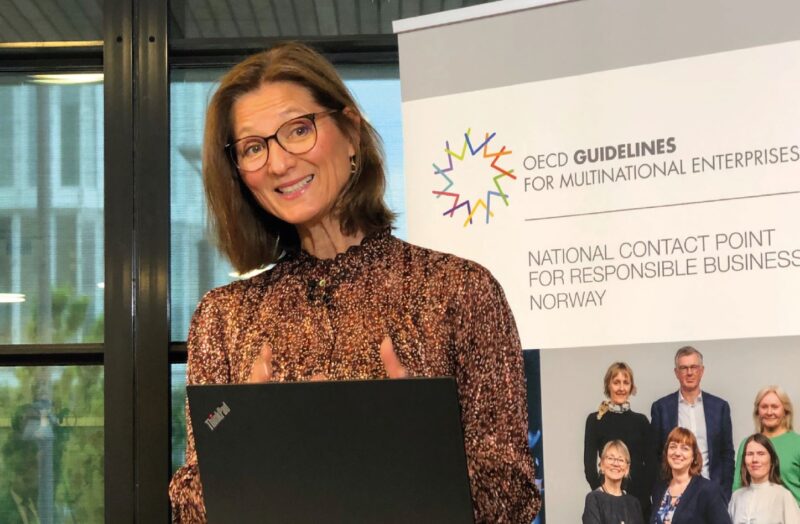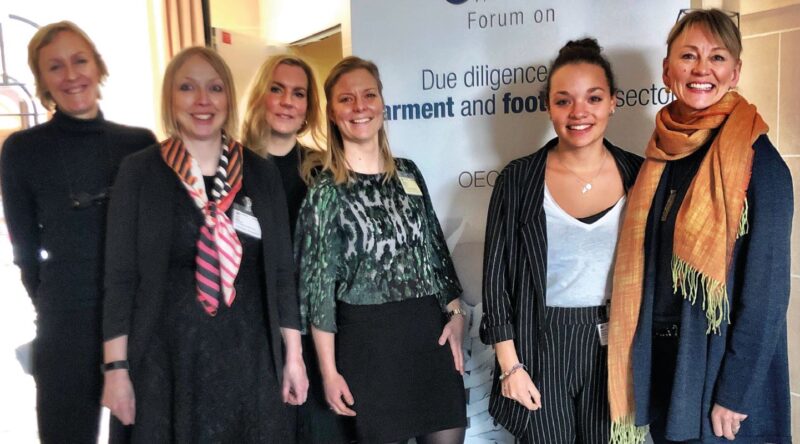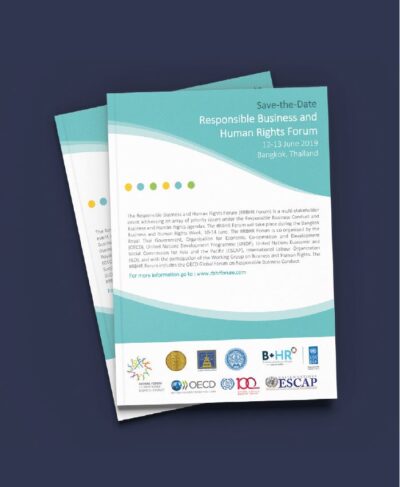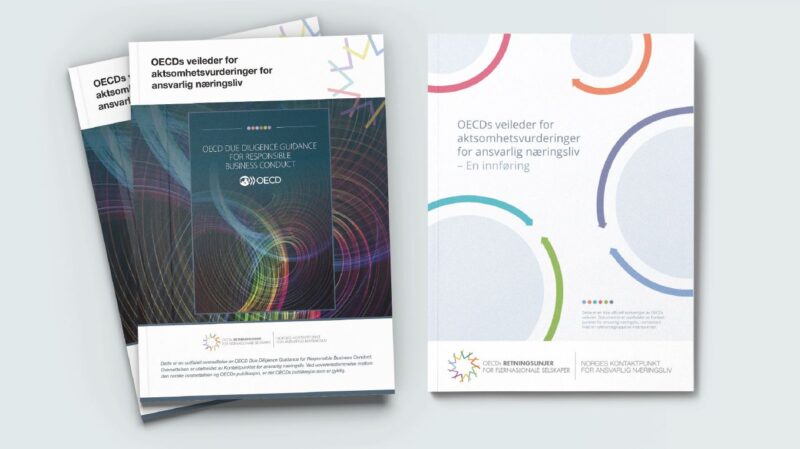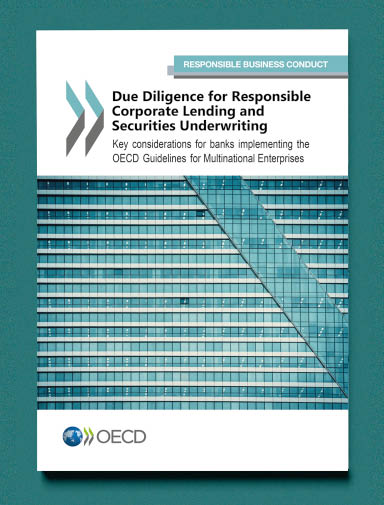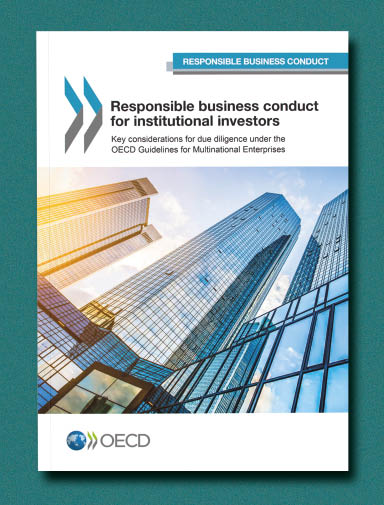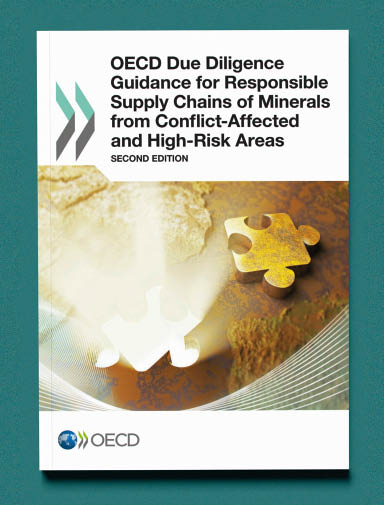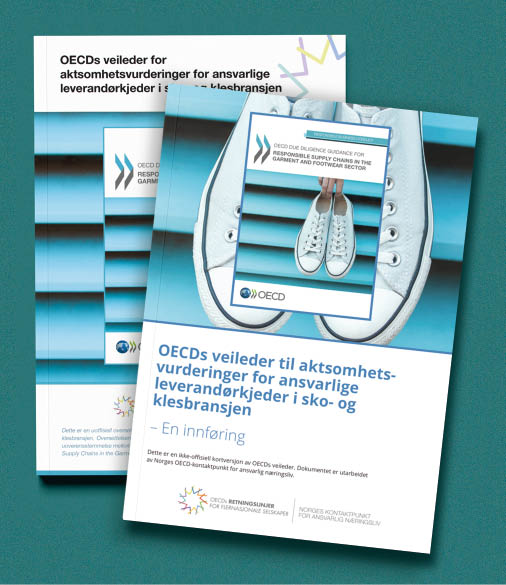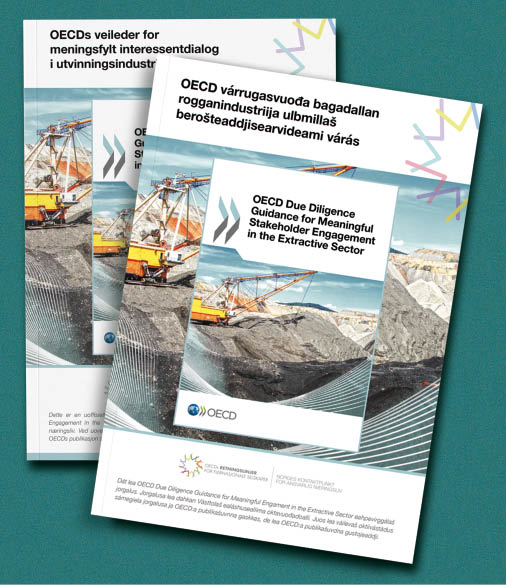International cooperation with the OECD’s central organisation and other NCPs
The third aspect of the NCP’s work is to cooperate and share best practice with the OECD and the 49 other national contact points. For the contact point system to gain trust, it is essential that multinational enterprises are subject to the same requirements and expectations regardless of which OECD country they are based in. The NCPs are organised differently, however, and their resources and status also vary, which challenges this principle.
INTERVIEW WITH CHRISTINE KAUFMANN
Staying relevant and practical
The OECD Guidelines for Multinational Enterprises have proven to be a flexible and practical instrument, able to keep up with a changing world and new demands.
Text: Marianne Alfsen, Felix Media.

Christine Kaufmann, Chair OECDs Working Party for Responsible Business Conduct
‘The issues that challenge our lives and societies today are all in the Guidelines: climate and the environment, labour rights, corruption, human rights, taxes. That is the huge advantage of the OECD Guidelines; they touch on all aspects of responsible business conduct,’ says Christine Kaufmann.
In 2019, she was elected the Chair of the Working Party for Responsible Business Conduct in the OECD. The Working Party is in charge of ensuring the continued relevance of the Guidelines and the National Contact Points for Responsible Business Conduct – a unique complaints mechanism under the Guidelines, found in 49 countries.
The Guidelines were first created by OECD governments in 1976, at a time when international consensus on these matters was hard to come by. Over the years, the scope has broadened to address all areas where business interacts with society, in response to a world where boundaries are being erased and the playing field for an increasing number of businesses is global. The Guidelines were last revised in 2011, when a human rights chapter was added to align with the UN Guiding Principles on Business and Human Rights (UNGPs).
Ahead of their time
The Litmus Test of the Guidelines’ ability to develop in step with society at large came when the Sustainable Development Goals (SDGs) were adopted in 2016. The Guidelines passed with flying colours and proved that they were ahead of their time. ‘The Guidelines talk about businesses being responsible in a broader sense. That they not only should do no harm, but actually contribute to society,’ says Kaufmann.
And that fit hand in glove with the SDGs: ‘We found a match with every single SDG in our Guidelines,’ continues Kaufmann, adding that: ‘Responsible business conduct is the best way to contribute to the SDGs.’
A practical tool
‘The Guidelines enshrine a vision shared by all stakeholders for business to contribute to society – and they don’t stop there: They break it down into bits and pieces that make that vision come alive and give affected people a voice through the NCP mechanism. This is what makes the OECD Guidelines unique,’ according to Kaufmann.
She explains that the operationalisation of the OECD guidelines, with a general Due Diligence Guidance document launched in 2018, is the result of continuous collaboration between the business community, trade unions, civil society and governments. They were formed in agreement through a multi-stakeholder process, which is a major key to their success.
In addition, Kaufmann says, the Due Diligence Guidance is written in plain language that is understood at middle-management level, since that is where action is taken. ‘The Working Party on RBC really makes an effort to live up to the OECD promise of Better Policies for Better Lives. And we have the instruments to do so – the National Contact Points for Responsible Business Conduct.’
A question of will
The National Contact Points for Responsible Business Conduct (NCPs) are found in each of the 49 countries that adhere to the Guidelines. They work to promote the Guidelines and handle complaints. In 2020, the NCPs have been around in their current form for 20 years.
‘The complaints mechanism is much better known now than two decades ago. But we still have a long way to go,’ Kaufmann says. She admits that there are huge differences between the NCPs when it comes to quality, status and practice in handling complaints. These differences need to be addressed.
‘I am an optimist by design,’ Kaufmann says. ‘Over the next decade, I want to see all NCPs provide an easily accessible, effective complaints mechanism, which serves as a forum for finding solutions through dialogue. This is not an issue of capacity, but political will.’



